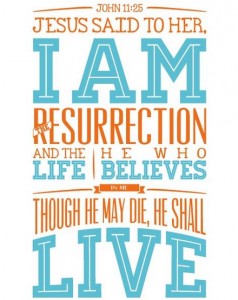Ecclesiastes 3:21 is a difficult verse to understand. It presents us with one of the most fundamental questions of life. Is there anything beyond the grave? Many scholars today argue that those living in the Old Testament era had  no concept of life after death. They use this verse (and others) to prove the assertion. It reads, “Who knows whether the spirit of man goes upward and the spirit of the beast goes down into the earth?” I like what Ryken said in his commentary as a general statement regarding this: “Although some scholars still doubt whether people in Old Testament times believed in life after death, it is clear from this and many other verses that they generally did.” Solomon is simply asking a question not making an assertion. I think he intends to keep his readers in a suspended state but then in chapter 12 he does make an assertion of what he believes to be true. He says, “…dust returns to the earth…But the spirit returns to God who gave it.”
no concept of life after death. They use this verse (and others) to prove the assertion. It reads, “Who knows whether the spirit of man goes upward and the spirit of the beast goes down into the earth?” I like what Ryken said in his commentary as a general statement regarding this: “Although some scholars still doubt whether people in Old Testament times believed in life after death, it is clear from this and many other verses that they generally did.” Solomon is simply asking a question not making an assertion. I think he intends to keep his readers in a suspended state but then in chapter 12 he does make an assertion of what he believes to be true. He says, “…dust returns to the earth…But the spirit returns to God who gave it.”
Solomon has belabored the point that one day the time will come for us to die. I’ve said too much about it in the last week, but my focus is not nearly as defined as Solomon’s is on death throughout the entire book. But the reality of death and knowing what will happen to us after we die would help us understand how we should live our lives today. Yet unless the issue of life after death is settled in our minds and hearts once and for all finding true joy in our everyday lives will never be possible. That’s been Solomon’s assertion about the pleasures, possessions, and positions of life “under the sun.” It won’t bring satisfaction! It will all be meaningless and vanity of vanities. He even despaired of life in general. In Chapter 4, he says it’s better to have even been born. Maybe Macbeth got the ultimate question right; “to be or not to be…” Then maybe it is better not to be. “It’s all a big nothing,” says one of the characters on the HBO drama, The Sopranos, “In the end you die in your own arms.”
The question is not “to be or not to be.” The question is “who.” Solomon asks two questions in Ecclesiastes 3:21-22. He asks, “Who knows whether the spirit of man goes upward and the spirit of the beast goes down into the earth?” Then he asks, “Who can bring him to see what will be after him?” Please notice that both of these questions look for a “who” not a “what” or a “why.” Who is it that knows what lies beyond the grave? Only one that has been there and they are not around to tell us. But every year the Christian world celebrates an event at Easter that was the culmination of this most important question for us all. He clearly answers Solomon’s two questions for us once and for all; He is the “who.” As Jesus prepared to raise Lazarus from the dead, as recorded in John 11:25, He told Martha, “I am the resurrection and the life. Whoever believes in me, though he die, yet shall he live.”